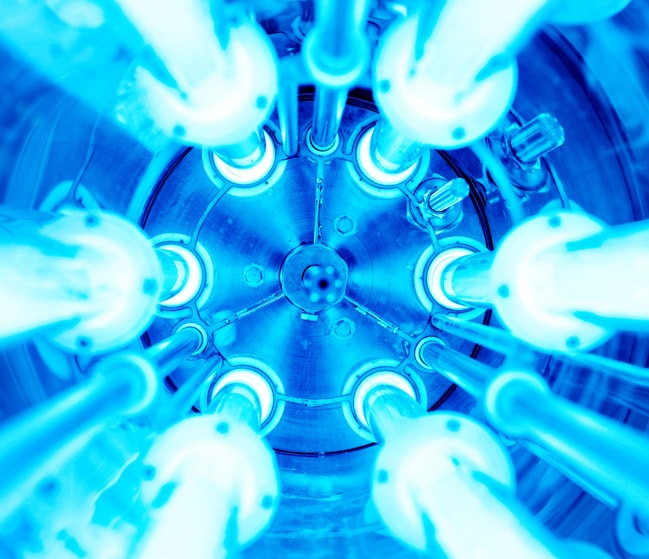 Dayton Water Systems stands as a single-source provider for all of your water treatment needs. Our experts handle engineering, design, manufacturing, installation, and ongoing service and maintenance for your water treatment systems. We can handle jobs of any size and can accommodate virtually any client requirement.
Dayton Water Systems stands as a single-source provider for all of your water treatment needs. Our experts handle engineering, design, manufacturing, installation, and ongoing service and maintenance for your water treatment systems. We can handle jobs of any size and can accommodate virtually any client requirement.
Ultraviolet (UV) disinfection systems have become popular in water treatment, both as an alternative to chemicals and as an extra purification step in larger multi-stage treatment systems. This page will discuss ultraviolet water purification technology and the solutions available from Dayton Water Systems.
What is an Ultraviolet Disinfection System?
Ultraviolet water purifiers use UV light at a wavelength of 253.7 nanometers to deactivate and destroy microorganisms such as algae, bacteria, mold, and viruses. UV exposure damages these pathogens at the DNA level, effectively deactivating them and keeping them from reproducing. Ultraviolet disinfection systems are commonly employed to treat drinking water, industrial process water, wastewater, and more.
Microorganisms may develop resistances to chemical purification systems over time. However, bacteria, viruses, and spores cannot survive direct exposure to UV light, making UV disinfection systems highly effective at sterilizing water in a broad range of use cases. Though UV energy between 240-280 nanometers is also found naturally in sunlight, direct synthetic exposure provides targeted treatment capabilities.
Applications for UV Water Purifiers
UV water purifiers have proven beneficial in numerous applications, including:
- Food and beverage. Ultraviolet disinfection systems help food and beverage manufacturers meet stringent FDA specifications for water purity.
- Pharmaceutical. Pharmaceutical manufacturers rely on ultraviolet water purification capabilities to create pure water for use in the production of medicines and for Clean-in-Place functions on manufacturing equipment.
- Cosmetics. Using contaminant-free water sources to manufacture cosmetics ensures a longer shelf life and improved quality for the end product.
- Residential/commercial drinking water. UV water disinfection systems can be incorporated into homes and offices to purify drinking water from the tap.
- Wastewater treatment. Municipal wastewater treatment plants use UV water disinfection systems as part of multi-stage water treatment processes.
Advantages of Ultraviolet Disinfection Systems
Ultraviolet water purification offers the following benefits:
- Safety. UV water purification requires no harsh or dangerous chemicals and will not form trihalomethanes during sterilization processes.
- Purity. Unlike chemical treatment, UV purification methods will not change the taste, smell, conductivity, or pH of the treated water.
- Simplicity. UV water purifications install quickly, typically featuring only two water hookups and one electrical hookup. These systems also feature easy maintenance requirements, typically only requiring a lamp replacement every year. Operation is automatic and user-friendly.
- Efficiency. UV light exposure deactivates microorganisms in mere seconds, eliminating the need for lengthy holding periods within tanks. A 40-watt bulb in a high-output, low-pressure mercury vapor lamp with high isolation pin can treat up to 100 gallons every minute with very little power consumption requirements. Even prolonged exposure to UV light will have only minuscule effects on the temperature of the water.
- Cost-effectiveness. UV treatment systems feature no moving parts that will malfunction, wear, or break. The systems themselves require a substantially lower investment than chlorine or ozone treatment systems.
UV Water Purifiers From Dayton Water Systems
At Dayton Water Systems, we offer a full range of out-of-the-box UV water purifiers, or we can fully engineer, design, and manufacture a system specific to the needs of the customer. To see how our solutions can benefit your operation, please contact us today.
